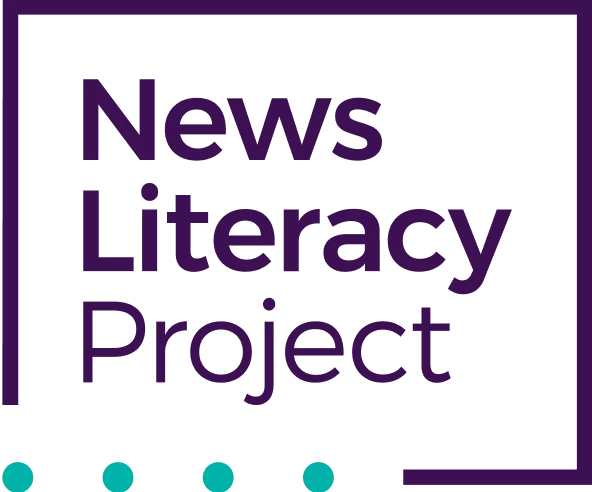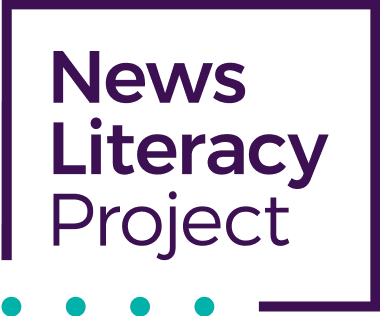Your News Literacy Jump Start
As you get ready to welcome students back, we’ve assembled your go-to news literacy resources.
Whether you’re navigating viral misinformation, tackling AI in the classroom or just short on time, you’ll find a tool to fit the bill and help students separate fact from fiction this fall.
At the heart of your back-to-school toolkit is the Checkology virtual classroom, your one-stop shop for teaching news literacy.
This FREE online tool from the News Literacy Project is packed with interactive lessons, instructional supports and classroom activities to help you cover topics such as the credibility of sources and information, spotting viral rumors, AI fakes and conspiracy theories, and understanding the role of a free press in society.

Power up your teaching with Checkology
Save time on prepping your news and media literacy curriculum. Aligned to standards, customizable and easy to implement, Checkology is designed to help you deliver today’s most urgently needed lessons.
Once you are logged in to Checkology, find all of the resources featured here by searching “starter pack” on the home page or filtering by category and other criteria.
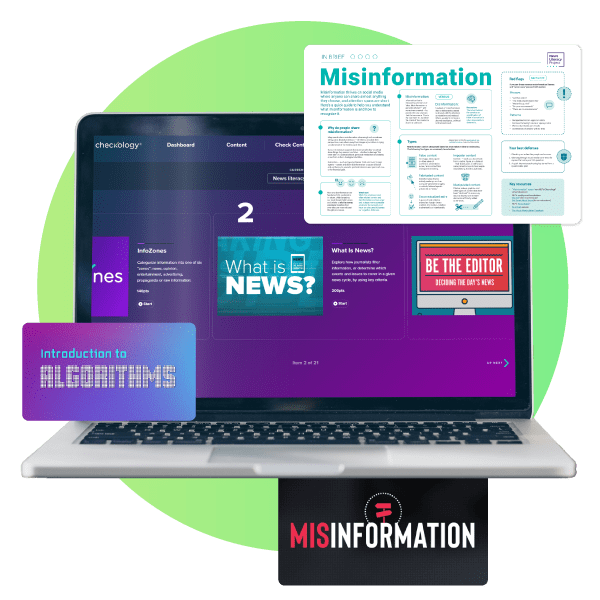
NEW for school year 2025-26:
The best Checkology yet!
- Resources galore: All the tools you love — interactive lessons, infographics, posters and more.
- Organized for your needs: Sort by grade, topic, resource type and more.
- Now accessible via Clever: Giving you improved data security with single sign-on access.
Plan ahead
Grab-and-go guides
👉For school district tech leaders and administrators, our Getting Started with Checkology Guide ensures that your educators and students get off to a glitch-free start.
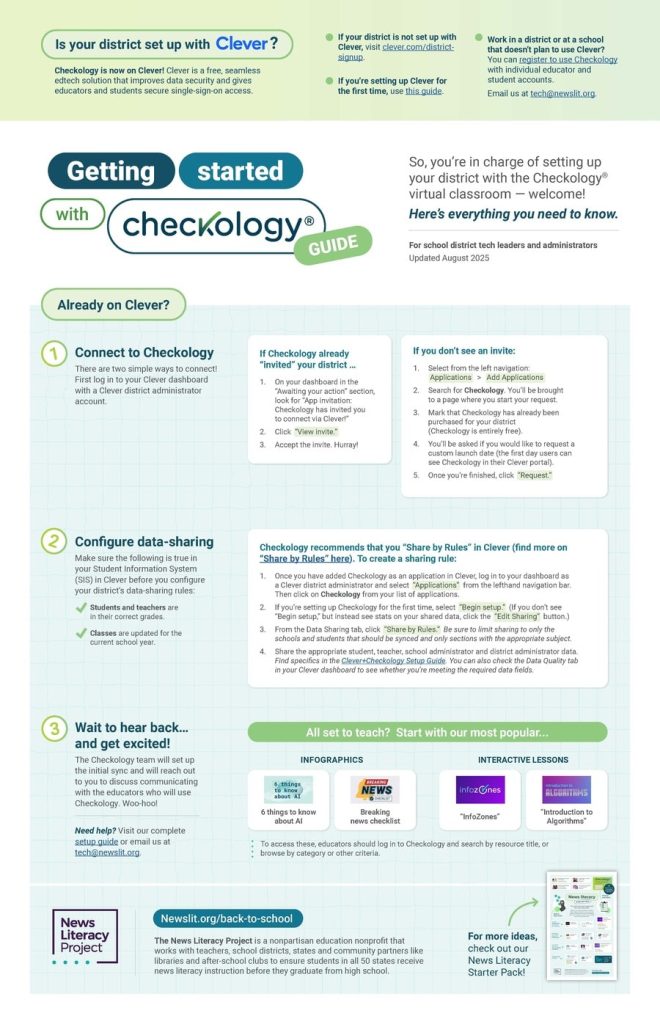
👉For educators, our News Literacy Starter Pack is brimming with easy-to-implement resources. Keep it in your digital toolkit or share with colleagues!
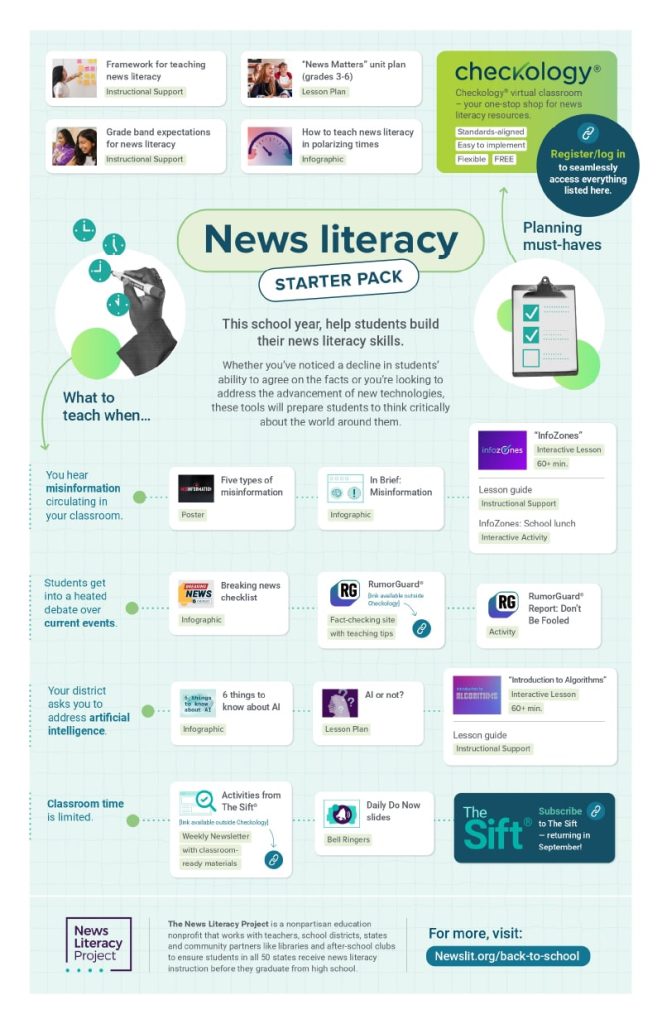
Meet the moment
Resources
When you’re deep in planning mode:

Framework for Teaching News Literacy [instructional support] — Use this tool outlining standards, questions, objectives, performance tasks and learning activities to assist you in planning.
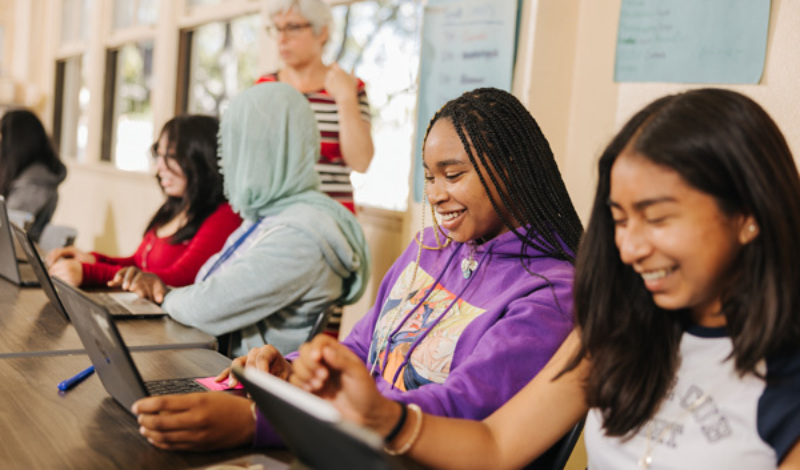
Grade band expectations for news literacy [instructional support] — Follow this roadmap of how skills can develop as students advance through grades PreK-12.

“News Matters” unit plan [lesson plan] — Dive into news literacy with students in grades 3-6, using this dynamic, three-week unit plan developed in partnership with TIME for Kids.
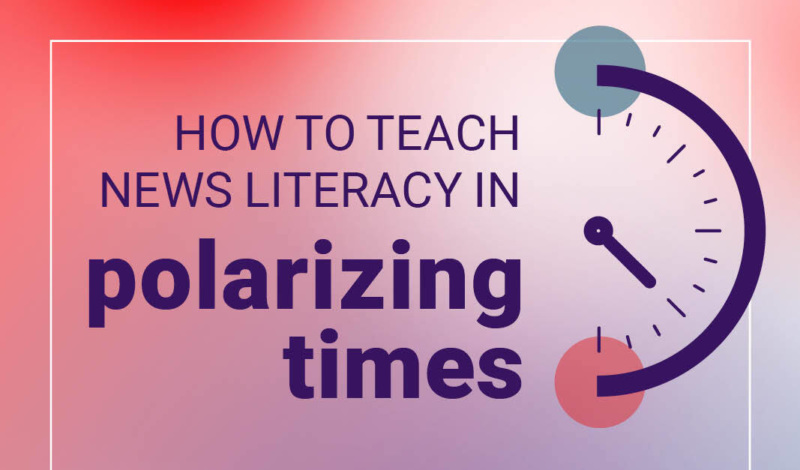
How to teach news literacy in polarizing times [infographic] — Learn eight strategies to help you teach the most important stories and issues of the day while navigating social and political differences to make classroom conversations worthwhile.
When you hear misinformation circulating in your classroom:
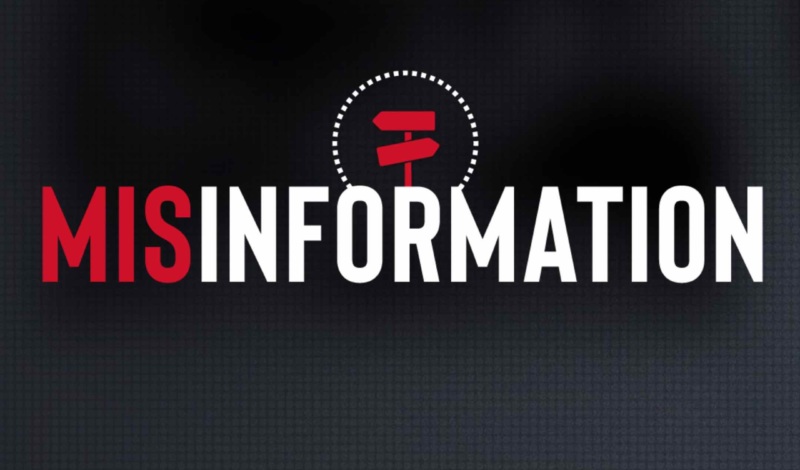
Five types of misinformation [poster] — Help students identify and define five types of misinformation.
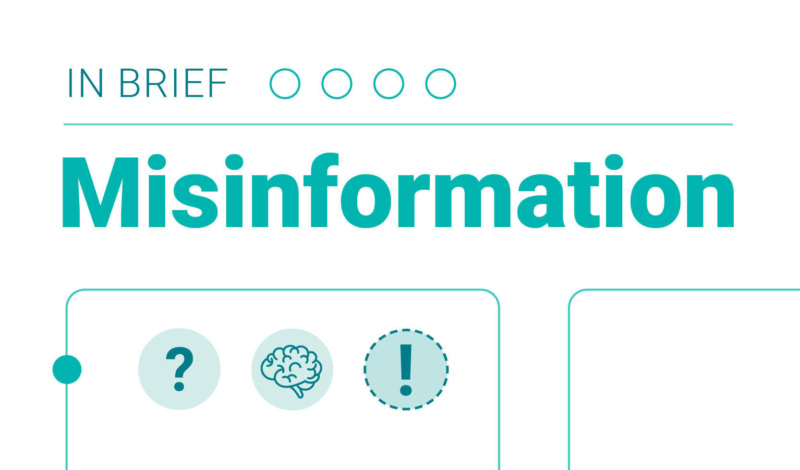
In Brief: Misinformation [infographic] — A quick guide to help students understand what misinformation is and how to recognize it
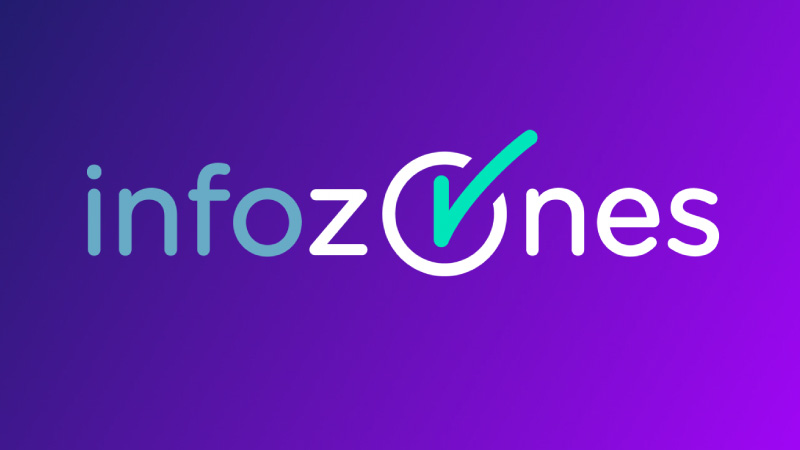
“InfoZones” [interactive lesson; 60+ min.] — Teach students how they can learn to categorize information into one of six “zones”: news, opinion, entertainment, advertising, propaganda or raw information
- Lesson guide [instructional support] — Use this at-a-glance tool for teaching “InfoZones” for educators.
- “InfoZones:” School lunch [interactive activity] — Give students a chance to practice identifying “InfoZones” with examples inspired by school lunch.
When students get into a heated debate over current events:
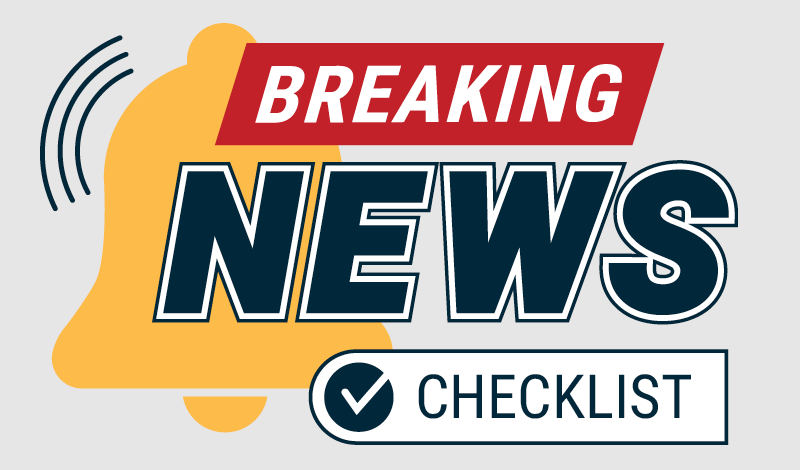
Breaking news checklist [infographic] — Get tips on how to navigate fast-moving news stories and avoid rumors, falsehoods and bad actors.
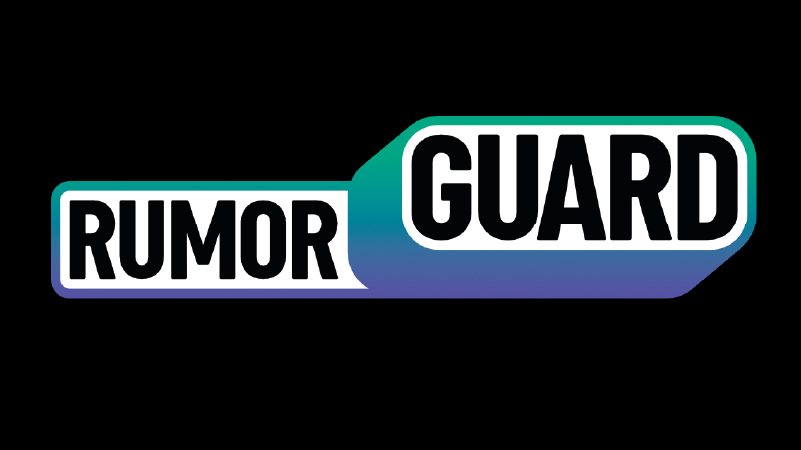
RumorGuard® [website; available outside Checkology] — Explore fact-checks and teaching tips.
- RumorGuard Report: Don’t Be Fooled [activity] — Help students learn how to investigate and debunk a viral rumor using this readymade handout, intended to be used alongside the RumorGuard site.
When your district asks you to address artificial intelligence:

6 things to know about AI [infographic] — Print this guide as a handout or a poster to help learn how AI technology works and the news literacy takeaways to keep in mind as AI evolves.
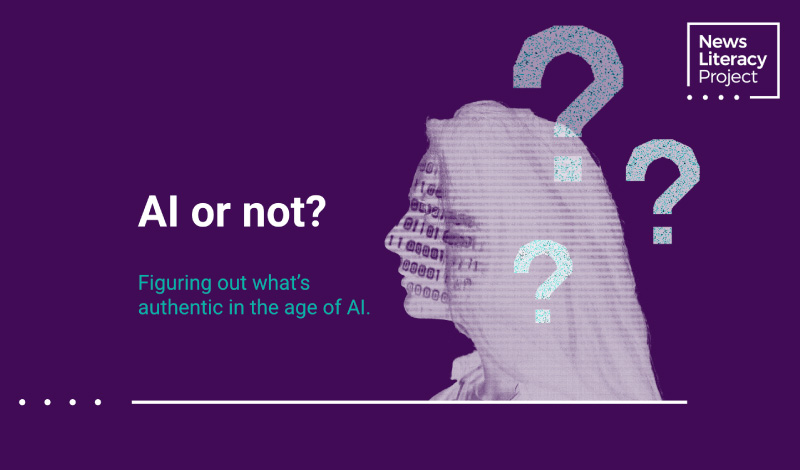
AI or not? [lesson plan] — Use this lesson plan, slides and quiz to teach about the impact of generative AI technology on the information landscape.
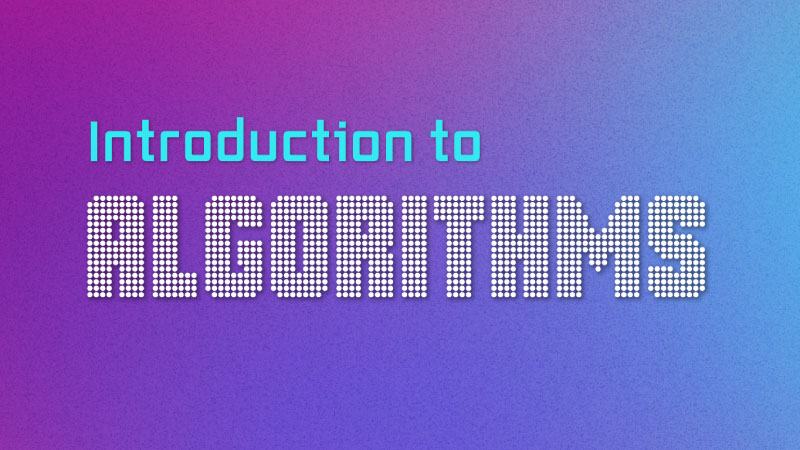
Introduction to Algorithms [interactive lesson; 60+ min.] — Help students understand the world of algorithms and AI, and weigh the civic and social impact of these technologies.
- Lesson guide [instructional support] — At-a-glance look at Introduction to Algorithms for educators
When classroom time is limited:
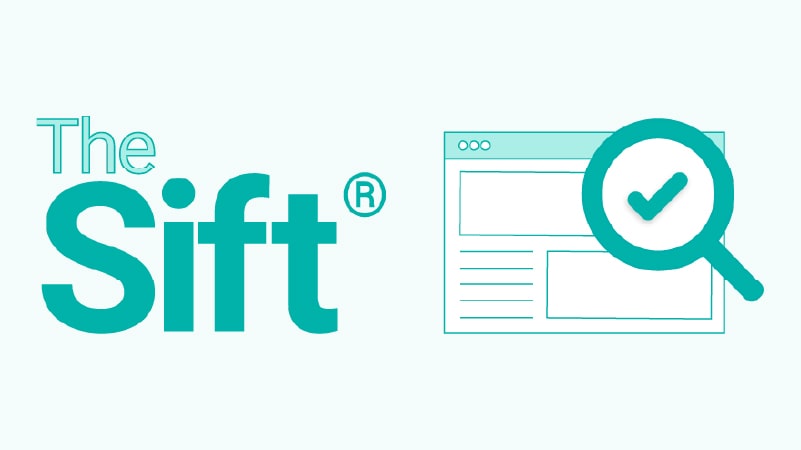
Activities from The Sift® [weekly newsletter; available outside Checkology] — Browse the latest issues to get classroom-ready materials about trends in news literacy.
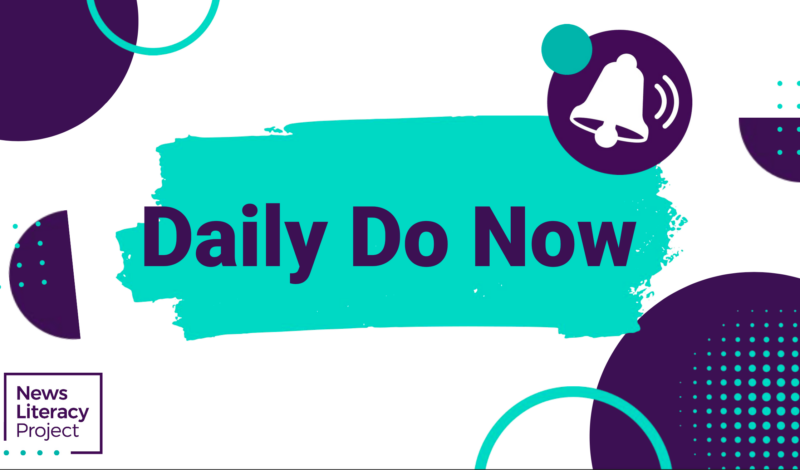
Daily Do Now slides [bell ringers] — Try these easy-to-use activities and discussion-starters from The Sift.
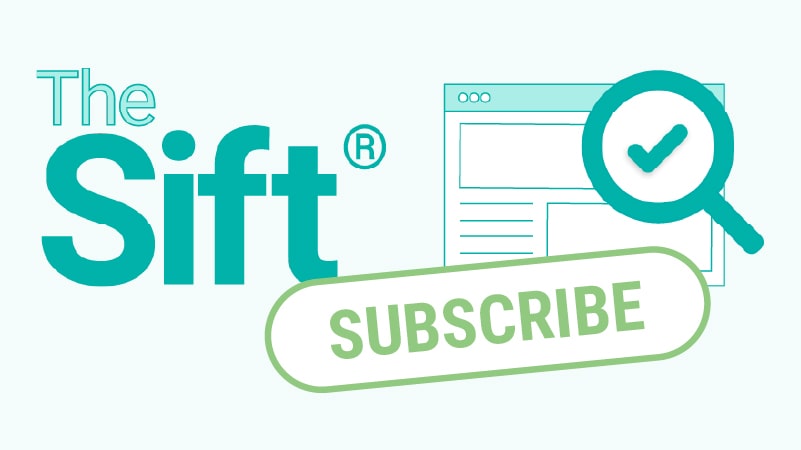
Subscribe to The Sift [available outside Checkology] — Get more bell ringers and activities, sent to your inbox each week of the school year, starting in September!
Timely training
Events
Join us for these free educator events aimed at helping you supercharge your news literacy curriculum and boost students’ understanding of quality journalism, the spread of misinformation, the impact of AI technologies and more.
📅 Tuesday, Aug. 19
5 p.m. ET/2 p.m. PT
News Literacy in Action: Getting Students to Think and Write Like Journalists
Toggle for event details
Join us for an engaging edWebinar and build a toolkit that will teach students the process behind standards-based reporting and how to tap into their own narrative nonfiction writing skills.
📅 Tuesday, Aug. 26 & Wednesday, Aug. 27
4 p.m. ET/ 1 p.m. PT & 7 p.m. ET/ 4 p.m. PT
Preview Checkology: Your News Literacy Hub
Toggle for event details
Join us for an engaging 30-minute webinar to learn more about Checkology’s foundational lessons in essential news literacy topics and understand how to get started with the platform. Plus, learn what’s new for the 2025-26 school year!
Extra support
Let’s make this school year your strongest one yet.
Want help planning your news literacy instruction? We’re here for you. For general questions, email [email protected]. For Checkology implementation questions, particularly around using Clever to access Checkology, email [email protected].
